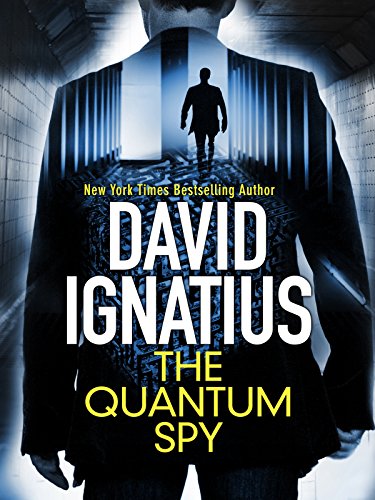 |
| Amazon link |
I first heard about this techno-thriller via Peter Woit's website, 'Not Even Wrong'.
"I don’t often read spy thrillers, but just finished one, The Quantum Spy, by David Ignatius. Ignatius is a well-known journalist at the Washington Post, specializing in international affairs and the intelligence community (and known to some as The Mainstream Media’s Chief Apologist for CIA Crimes). While the book is fiction, it’s also clearly closely based on reality. Sometimes writing this sort of “fiction” allows an author to provide their take on aspects of current events that confidentiality prevents them from writing about as “non-fiction”. ...But is the novel any good? Peter Woit rather piously explains:
The topic of The Quantum Spy is Chinese spying on American research in quantum computing. This is very much in the news these days: after finishing the book I picked up today’s paper to read about the arrest of a Chinese-American ex-CIA agent on charges of being a mole spying for the Chinese (a central theme of the Ignatius novel is the divided loyalties of a Chinese-American CIA agent). ...
Ignatius clearly spent quite a bit of time talking to those very knowledgeable about this. One part of his story is about a company closely based on D-Wave, and he explains that the technology they have is different than the true quantum computer concept that is being pursued by others. Majorana fermions and topologically protected states make an appearance in another part of the story. One character’s reading material to orient himself is Scott Aaronson’s Quantum Computing Since Democritus.
The novel portrays the US and Chinese governments as highly concerned and competitive about quantum computing technology and its security implications. I’d always naively assumed that classified research on quantum computing was carried on just by groups within the NSA or other security agencies, but Ignatius tells a different story. According to him, what happens is that groups performing unclassified government-funded quantum computing research in the open can find themselves forced to “go dark”, with their work going forward classified and no longer publicly accessible. His plot revolves around Chinese efforts to get information about such research. ..."
"I’m the wrong person to ask, the few spy stories I’ve read have been because of an interest in some non-spy thriller aspect of the story. The spy thriller aspect of this one didn’t seem particularly compelling, but what do I know."But on Amazon, the title of the thriller is given as: "The Quantum Spy: An unputdownable technothriller that will keep you gripped".
Having devoured this on my Kindle, I can confirm that it's an edge-of-the-seat page-turner.
---
Characters good: check. Plot races along: check. Not too much political correctness: check.
I thought the conflicting loyalties thing of Chinese-Americans was sympathetically done. It's the perennial question. Substitute 'ethnic kin' for 'friend'.
In the novel, the 'D-wave'-like machine seems to accomplish wonders in facial recognition over a vast CCTV dataset. This seems completely unrealistic: I think with some image-pre-processing (eigenfaces) this task would be fast-enough on conventional computers, and I think it's beyond the state of the art for current quantum computers. But what do I know?
The novel only really disappoints in its saccharine finale: all must have prizes.
Very American.
---
My review of 'Quantum Computing Since Democritus' - Scott Aaronson.
No comments:
Post a Comment
Comments are moderated. Keep it polite and no gratuitous links to your business website - we're not a billboard here.